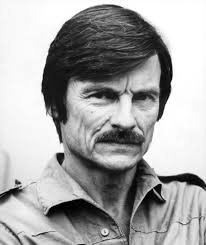
Andrei Tarkovsky (April 4, 1932 – December 29, 1986) was a Russian filmmaker, screenwriter, and film theorist, widely regarded as one of the greatest directors in the history of cinema. Known for his philosophical and spiritual approach to filmmaking, Tarkovsky’s work is characterized by long takes, poetic imagery, and an exploration of existential and metaphysical themes. He became an icon of the Soviet and international film world, creating a unique cinematic language that continues to influence directors today.
Early Life and Education:
Andrei Arsenyevich Tarkovsky was born in Zavrazhye, Soviet Union (now part of Russia). His father, Arseny Tarkovsky, was a renowned poet, and his mother, Maria Ivanovna, was a literary critic. Tarkovsky’s early exposure to literature and poetry significantly influenced his approach to cinema.
Tarkovsky attended the State Institute of Cinematography (VGIK) in Moscow, where he studied under the guidance of filmmaker Mikhail Romm. His education at VGIK laid the groundwork for his unique approach to filmmaking, blending technical mastery with intellectual and artistic depth.
Early Career:
Tarkovsky’s career in filmmaking began with his student short films. One of his early works, “The Killers” (1956), was based on a short story by Ernest Hemingway. However, it was his graduation film, “Ivan’s Childhood” (1962), that brought him international recognition.
“Ivan’s Childhood” tells the story of a young boy who is caught up in the horrors of World War II. The film’s haunting visuals, along with its themes of innocence lost and the ravages of war, set the tone for Tarkovsky’s future work. The film won the Golden Lion at the Venice Film Festival, marking the beginning of Tarkovsky’s reputation as a master filmmaker.
Major Films and Themes:
- “Andrei Rublev” (1966): Tarkovsky’s next major film, “Andrei Rublev”, is considered one of his masterpieces. The film follows the life of the 15th-century Russian icon painter Andrei Rublev, exploring themes of faith, suffering, artistic creation, and the relationship between the individual and society. The film’s non-linear structure and its depiction of Rublev’s inner spiritual struggles against the backdrop of medieval Russia made it controversial and difficult to access for Soviet authorities, who initially censored it. Despite this, “Andrei Rublev” is now considered one of the most important films in world cinema.
- “Solaris” (1972): Based on the novel by Stanislaw Lem, “Solaris” is a science fiction film that focuses on the psychological and existential struggles of a group of scientists studying an alien planet. Unlike traditional sci-fi films, Tarkovsky’s “Solaris” is less concerned with technology and more focused on human consciousness, grief, and the emotional impact of the unknown. The film’s deliberate pacing, haunting visuals, and philosophical underpinnings set it apart from mainstream science fiction and cemented Tarkovsky’s place as a cinematic visionary.
- “Mirror” (1975): “Mirror” is a deeply personal and poetic film, often considered Tarkovsky’s most autobiographical work. The film is a fragmented and nonlinear exploration of memory, identity, and the passage of time, blending moments from Tarkovsky’s childhood with broader reflections on history, family, and Soviet life. The film’s unconventional narrative structure and its lush, impressionistic cinematography reflect Tarkovsky’s interest in exploring the inner workings of the human psyche rather than following traditional narrative conventions.
- “Stalker” (1979): One of Tarkovsky’s most famous films, “Stalker” is a philosophical science fiction film about a guide (the “stalker”) who leads two men through a mysterious and dangerous area known as “The Zone,” where it is said that a room exists that can grant a person’s innermost wish. “Stalker” explores themes of faith, human desire, and the search for meaning. The film is characterized by its slow pacing, long takes, and meditation on existential and metaphysical questions. “Stalker” remains one of the most influential films in the history of cinema, particularly in the realms of philosophical and speculative fiction.
- “Nostalgia” (1983): After leaving the Soviet Union due to political difficulties, Tarkovsky moved to Italy and made “Nostalgia”, a meditative film about a Russian writer in Italy grappling with feelings of exile and longing for his homeland. The film deals with themes of memory, longing, and spiritual crisis, and it marks Tarkovsky’s deepening interest in the relationship between the individual and the metaphysical world. “Nostalgia” won the Grand Prix at the 1983 Cannes Film Festival.
- “The Sacrifice” (1986): Tarkovsky’s final film, “The Sacrifice”, was made in Sweden and explores the themes of faith, sacrifice, and the fear of nuclear annihilation. The film tells the story of a man who, in the face of an impending war, offers a personal sacrifice to prevent the disaster. Like many of Tarkovsky’s works, “The Sacrifice” features an intense exploration of spiritual questions and the nature of human existence. It was awarded the Jury Prize at the Cannes Film Festival in 1986.
Filmmaking Style:
Tarkovsky is known for his distinctive visual style, marked by:
- Long takes: Tarkovsky often used long, uninterrupted shots to create a meditative and immersive atmosphere. These shots allow the viewer to feel the passage of time and experience the emotional and psychological depth of the characters.
- Symbolism and imagery: His films are rich in metaphorical and symbolic imagery, often using elements of nature (water, fire, earth) and religious iconography to explore complex philosophical themes.
- Slow pacing: Tarkovsky’s films have a deliberate pace that invites contemplation. Unlike Hollywood films, which often rely on rapid cuts and action sequences, Tarkovsky’s films encourage the viewer to reflect on the deeper meaning of the narrative.
- Spiritual and existential themes: His films frequently explore questions of faith, the nature of reality, the human soul, and the search for meaning in a world that often appears uncertain or hostile.
Legacy and Influence:
Andrei Tarkovsky’s films have had a profound influence on filmmakers and cinephiles around the world. His works have inspired directors like Terrence Malick, Christopher Nolan, David Lynch, Martin Scorsese, and Alejandro González Iñárritu. Tarkovsky’s approach to cinema as a medium for spiritual and philosophical exploration has left a lasting imprint on the art form, and his films continue to be studied and admired for their depth, complexity, and visual beauty.
Despite his relatively small body of work, Tarkovsky’s influence on cinema is immense. His films stand as a testament to the power of cinema to explore the most profound and intangible aspects of human experience.
Personal Life and Death:
Tarkovsky’s life was marked by personal and professional struggles. He often found himself at odds with Soviet authorities, particularly because of the spiritual and philosophical themes in his films, which were seen as critical of the state. This led to censorship and difficulties in getting his films released in the Soviet Union.
Tarkovsky was diagnosed with terminal cancer in the early 1980s. He continued to work on films during his illness, and he passed away in 1986 at the age of 54 in Paris. Despite his relatively short life, his contributions to cinema have had an enduring impact.
SOCIAL MEDIA LINKS :
YOUTUBE : https://www.youtube.com/watch?v=4JRfeshEboI&pp=ygUaQW5kcmVpIFRhcmtvdnNreSBJTlRFUlZJRVc%3D




